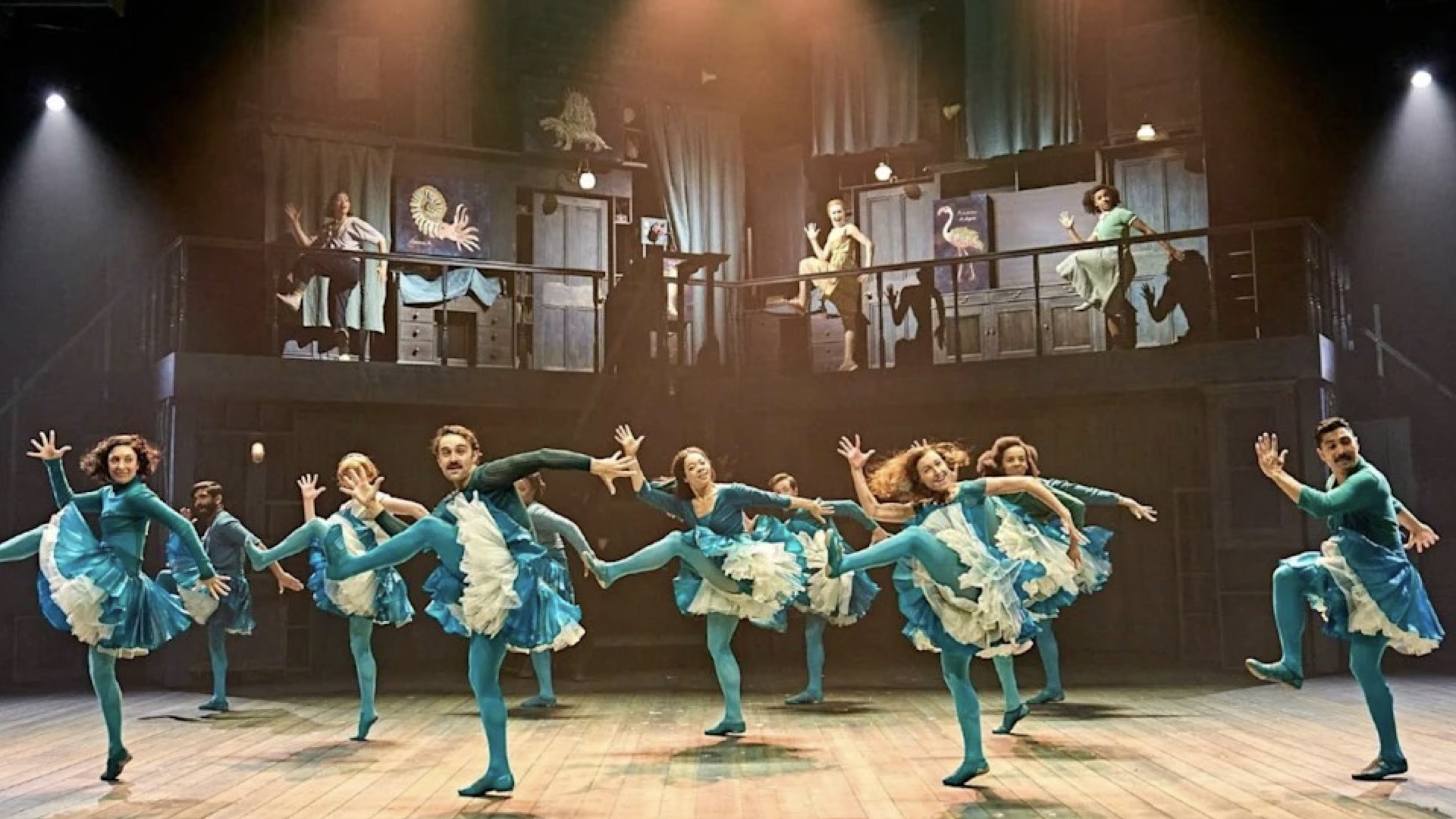17 November 2025 – 21 February 2026
Olivier Theatre, National Theatre – London
On the South Bank, the historic Olivier stage at the National Theatre is hosting a new adaptation of Noel Streatfeild’s beloved classic Ballet Shoes this season. Directed by Katy Rudd and adapted for the stage by Kendall Feaver, the production stands out with its story of growing up, sisterhood, emancipation, and “carving out a place in the world with one’s own voice.”
A house, three sisters, and the desire to rewrite the future
The play opens in an old London house: walls lined with fossils, corners filled with dinosaur bones, shelves holding half-finished research projects—a space that is both chaotic and endlessly fascinating.
Living here are three adopted sisters—Pauline, Petrova, and Posy—each searching for a path that truly belongs to them.
Each opens onto a different world:
- Pauline to the stage,
- Petrova to machines and the sky,
- Posy to the discipline of ballet.
What makes Streatfeild’s text timeless, however, is that these journeys are far more than simple “talent stories.” The play is built on the courage of women to step outside the roles assigned to them. Set in 1930s London, the story still speaks directly to today’s debates:
Who do we want to become? How much room does society give us for that transformation?
Katy Rudd’s intuitive touch
Katy Rudd, who created such striking visuals in The Ocean at the End of the Lane, brings the same sensibility to Ballet Shoes, striking a meticulous balance between magical realism and practical stagecraft.
Stand-out elements of the staging:
- Minimal yet highly functional set design that turns the house’s “scientific clutter” into a richly theatrical atmosphere.
- Movement direction—especially around Posy—plays a defining role in the production’s rhythm.
- Small, humorous interactions between the sisters keep the piece from ever tipping into heavy melodrama.
Rudd’s interpretation preserves the novel’s nostalgia while carrying it firmly into the reading space of a contemporary audience.
The warmth of sisterhood and the shadow of loss
Despite an age guidance of 7+, the production offers powerful themes for adult viewers as well. At its heart lie the weighty emotions of adoption, belonging, and loss. Sylvia and Nana’s protective yet fragile presence forms an essential backdrop to the children’s efforts to build their own worlds.
Emotionally, the show settles into a place that is tender yet never overwhelming. The theme of loss does not leave the audience submerged in intense drama; instead, it makes visible the fragile yet restorative side of what it means to be family.
Framing what is possible for women
Written within the constraints of its era, Ballet Shoes nevertheless places the idea of “what women can be” at its centre. Feaver’s adaptation makes this emphasis even clearer.
The sisters’ desire to follow their passions is far more than individual courage: it becomes a staging of the expanding territory of the female subject in early-20th-century England.
Pauline’s radiance on stage, Petrova’s determined passion for engineering, Posy’s disciplined ballet practice—each is a different form of resistance.
An intimate yet large-scale narrative on the Olivier stage
Although the Olivier is designed for grand productions, Ballet Shoes establishes a more horizontal narrative.
Set and lighting design break up the vast space to make the warmth of home and the feeling of sisterhood palpably portable on stage.
The cast, featuring Anoushka Lucas alongside a strong ensemble of young performers, creates a genuine sense of community.
Apartman No:26 Note
A classic text given contemporary breath
On the surface Ballet Shoes may look like a coming-of-age tale, but at its core it is a delicate, warm, and finely wrought play about the historical journey of female subjectivity.
Katy Rudd’s direction makes the show accessible to both children and adults; most importantly, it leaves one question resonating for our time:
How far can the life we choose for ourselves diverge from the one handed to us?
The National Theatre’s new interpretation offers London audiences an experience that is both nostalgic and boldly fresh.














